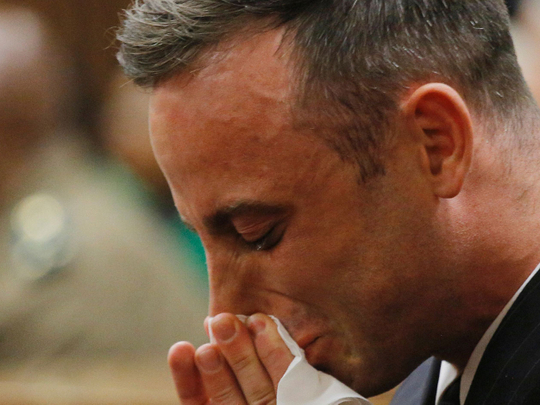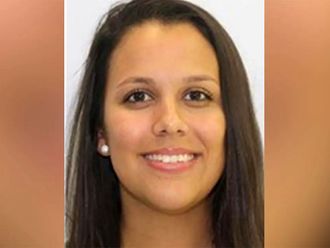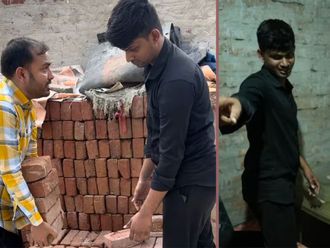
Johannesburg: Oscar Pistorius' life story from before and after Valentine's Day 2013 reads like the script to two markedly different films the first an inspirational sporting biopic and the second a grim tale of murder.
In the first he was the "Blade Runner", the multiple Paralympic gold medallist with carbon-fibre prosthetic legs who became the first double amputee to compete in the Olympics when he represented South Africa at the 2012 London Games.
In the second he was the man convicted of murdering his 29-year-old girlfriend Reeva Steenkamp - a model and promising law graduate - by shooting her through the door of a bathroom in his Pretoria home.
On Friday, he will be back in the spotlight when he will be released from prison nearly 11 years after the killing. He was granted parole on Nov. 24, to take effect on Jan. 5.
Pistorius, though no longer in prison, is to remain under close supervision and will be subject to parole conditions until his sentence expires in December 2029.
He will not be allowed to consume alcohol and other prohibited substances and will be barred from conducting media interviews, the Department of Correctional Services said on Wednesday.
Pistorius, who was born without fibulas and had both legs amputated below the knees before his first birthday, was once seen as the embodiment of human triumph over adversity.
The Johannesburg-born athlete gained global fame in the early 2000s, when he won Paralympic gold in the 200 metres at the Games in Athens.
Pistorius then set his sights on running against able-bodied athletes at the 2008 Beijing Olympics, but was barred from competing in the event by World Athletics - then called the International Association of Athletics Federations.
The ban was eventually overturned by the Court of Arbitration for Sport, but Pistorius failed to qualify for the Olympics, coming within 0.70 seconds of the qualifying standard for the 400 metres in Beijing.
Restorative Justice
Undeterred, he swept that year's Paralympics, taking home the 100, 200 and 400 metre gold medals, before launching a bid to qualify for 2012 Olympics in London.
This time he was successful, and reached the 400m semi-finals and competed for South Africa in the 4x400m relay.
He also won another three Paralympic medals that year but then, on Feb. 14, 2013, he shot and killed Steenkamp.
A gun enthusiast, he told the trial he had believed Steenkamp was an intruder when he shot her several times with ammunition designed to inflict maximum damage to the human body. It was an account he repeated over the years.
He was initially jailed for five years in 2014 for culpable homicide. That sentence was changed to six years after the Supreme Court of Appeal in late 2015 found him guilty of the more serious charge of murder, later increasing it to 13 years after prosecutors argued the punishment was too lenient.
In 2022, Pistorius met Steenkamp's father Barry during a process known as victim-offender dialogue - part of South Africa's restorative justice programme that brings parties affected by a crime together in a bid to achieve closure.
Few details were made public about the meeting and Steenkamp's father died in 2023.
Her mother June said in a statement before the parole hearing for Pistorius, now 37 years old, that she was not convinced he had been rehabilitated.
But she added that she had forgiven him "long ago as I knew most certainly that I would not be able to survive if I had to cling to my anger".








